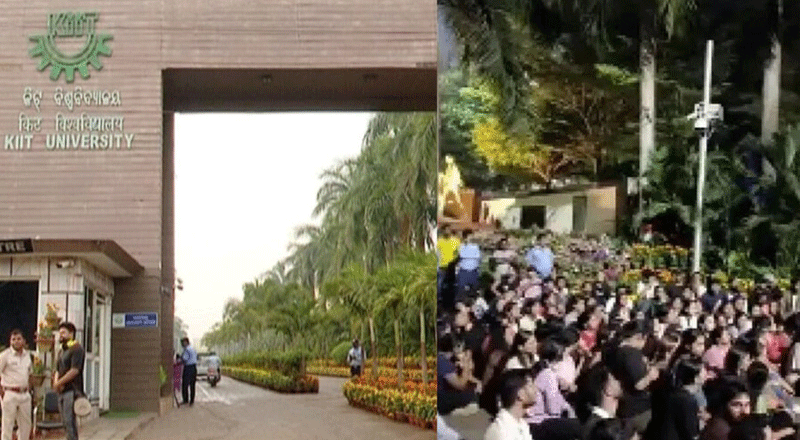This plantation drive was part of the Iconic Week Celebration of the Ministry of Finance from 6th to 12th June, 2022 as part of the events under “Azadi Ka Amrit Mahotsav (AKAM)” to commemorate 75th year of Independence and to bestow the honour to all our freedom fighters who have laid their lives in ensuring India attaining freedom in 1947. This Iconic Week celebration was launched on 6th June, 2022 by the Prime Minister, Shri Narendra Modi at Vigyan Bhawan in New Delhi.
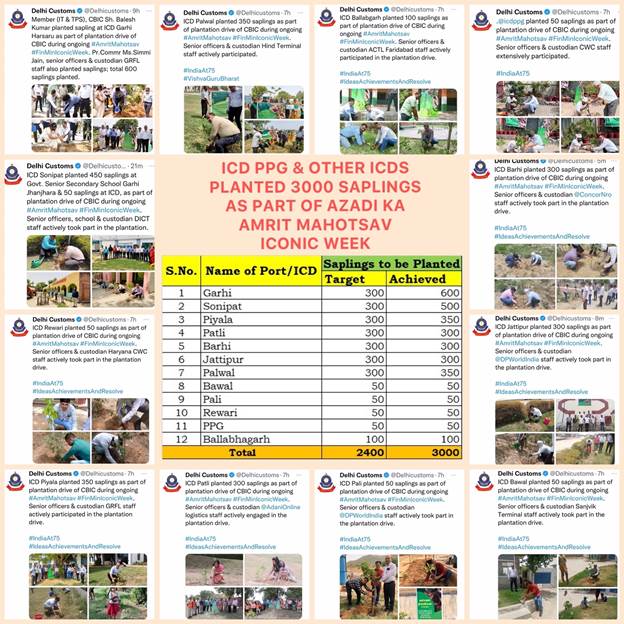
Central Board of Indirect Taxes & Customs (CBIC) as part of Department of Revenue under Ministry of Finance was entrusted with the responsibility of planting 75,000 saplings across the country on 7th June, 2022. Special Secretary & Member, CBIC Shri Balesh Kumar inaugurated the event by planting a sapling at Garhi-Harsaru, one of the 11 ICD/ dry port locations in Haryana in the presence of Mrs. Simmi Jain, Principal Commissioner of Customs, ICD Patparganj Commissionerate, along with other Customs officials.
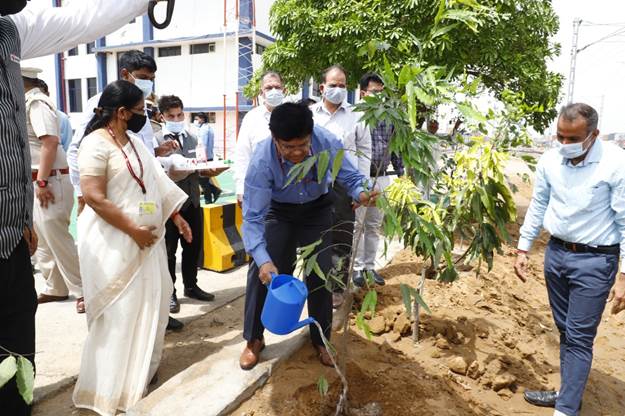
Plantation was carried out simultaneously at 12 ICDs under the jurisdiction of Patparganj Commissionerate covering 11 ICDs in Haryana and 12th one located at Patparganj in the State of Delhi. In total, over 3000 plants were planted in these 12 locations with 600 saplings at Garhi-Harsaru, 500 each at Sonipat and Piyala, 350 at Palwal, 300 each at Patli, Jathipur & Barhi, 100 at Ballabhgarh and 50 each at Bawal, Pali, Rewari and Patparganj in Delhi. In addition, plantation was also undertaken in two schools namely, one at Sonipat and the other at Gurugram where “Project Sajal” was launched recently by Delhi Customs on 26th June, 2022 as part of Swachhata Action Plan of the Government of India for providing safe drinking water to students. Plantation in these schools over the years will not only ensure recharging the local ground water level but will also aid the Project Sajal launched by Delhi Customs in providing sustainable and safe drinking water to the school students.
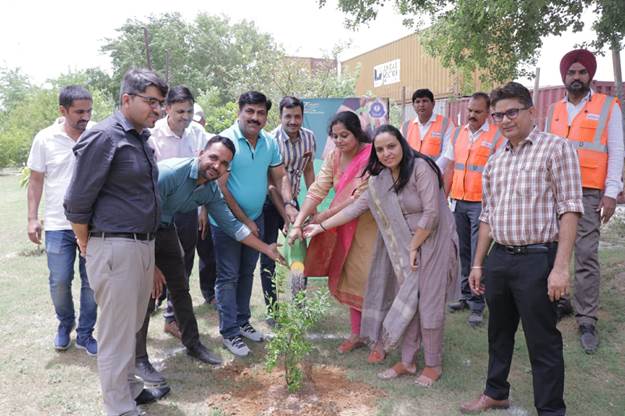
As part of this plantation drive, Delhi Customs has chosen variety of saplings with special emphasis on plants that are of native species with fruit bearing, flowering and shade giving properties. To ensure that the planted tree has high survival rate, pits were prepared in advance and termite treatment was also given before the saplings were planted. Based on this, saplings of different varieties of trees like Asoka, Mango, Guava, Neem, Gulhar, Pilkhan, Kadamb, Bargad (Banyan), Peepal, Kaner, Chandani, Orange were planted at these locations. In Sonipat, Rajkiya Prathmik Pathshala, Garhi- Jhanjhara 250 plants were planted, most of them being fruit bearing plants.
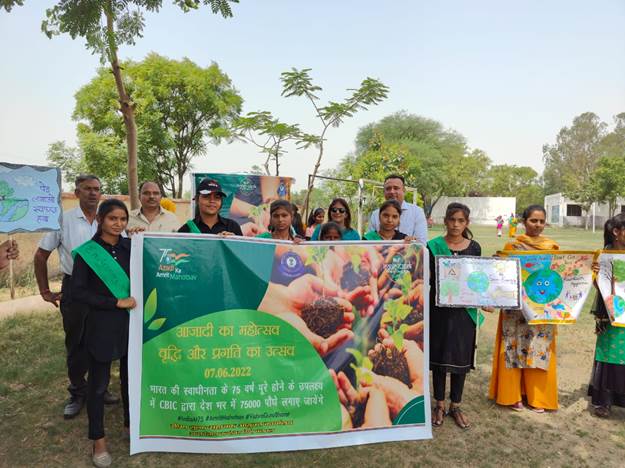
This mega project of plantation was undertaken in active coordination with the custodians of Patparganj Customs, namely, ACTL-Faridabad, Hind Terminal, GRFL, Sanjvik Terminal, Container Warehousing Corporation, Adani Logistics, Rewari Haryana Warehousing Corporation, DP World, Concor & DICT, two government schools each at Garhi- Harsaru and Garhi- Jhajhara and nearby villages to ensure its better upkeep and maintenance for high survival rate post plantation.
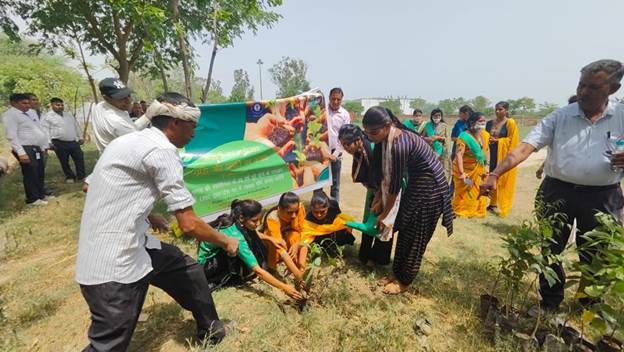
Most plants selected for plantation are aimed to reduce greenhouse gases through photosynthesis. Neem on an average produces 260 pounds of oxygen each year while the Banyan tree are ecological linchpins. They not only produce oxygen at night but also produce vast crops of figs that sustain many species of birds, fruit bats, primates which in turn disperse the seeds of hundreds of plant species. The mango tree produces delicious fruit and also absorb carbon dioxide to produce oxygen. Peepal gives oxygen 24 hours and uses up carbon dioxide which is responsible for greenhouse emissions.
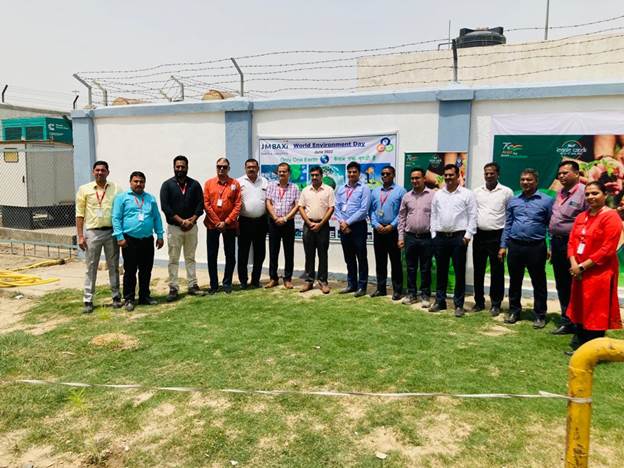
****





